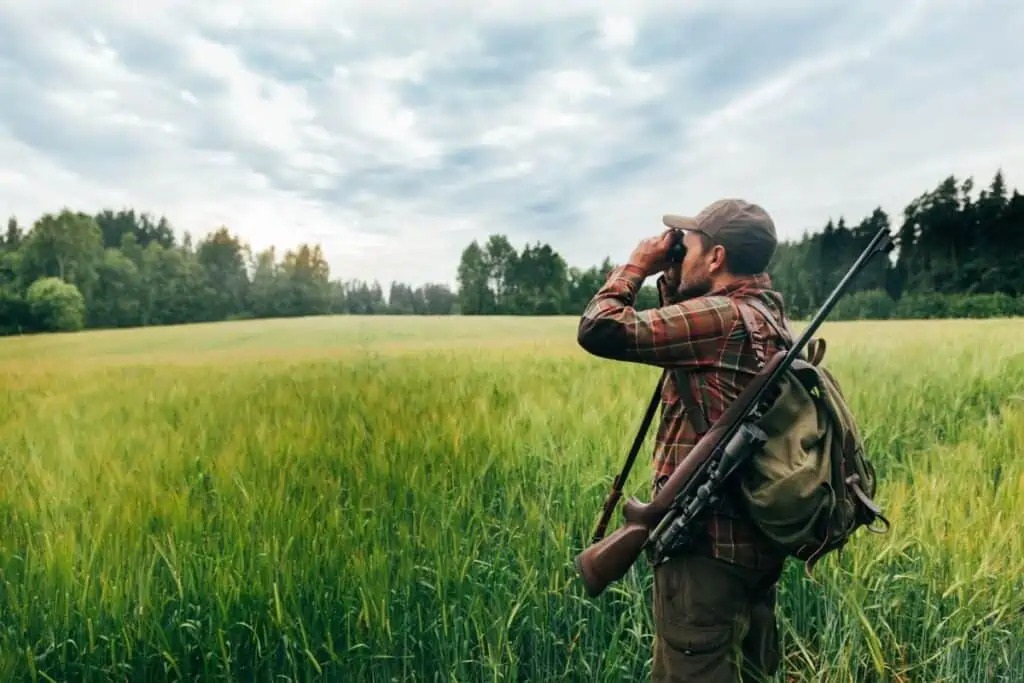
13 Jan How Do Game Conservation Laws Affect Hunters?
Hunting is a popular outdoor recreational activity that also helps manage wildlife populations. However, it needs to be regulated to ensure sustainable practices. That’s where game conservation laws come into play. These laws establish guidelines for ethical hunting practices that protect animal populations and habitats while still allowing regulated hunting. Here we Uncover the ways these regulations shape the hunting experience, influence wildlife conservation efforts, and impact local hunting communities. How Do Game Conservation Laws Affect Hunters? Get the insights you need.
What are Game Conservation Laws?
Game conservation laws are policies established by local, state, and federal agencies to manage game species and regulate hunting practices. They are designed to:
- Protect wildlife populations from overhunting
- Preserve habitats and biodiversity
- Promote ethical hunting practices
- Ensure long-term sustainability of game species
Specific laws can vary by region but often include:
- Bag limits – Restrictions on the number or type of animals a hunter can harvest. This prevents overhunting of any one species.
- Hunting seasons – Established timeframes dictating when hunting for certain species is allowed. This limits hunting during delicate life stages like the breeding season.
- Hunting permits/tags – Permits or tags are required to hunt certain species. Fees associated with these permits help fund conservation efforts.
- Hunter education programs – Mandatory safety and ethics training for new hunters. This promotes responsible hunting practices.
- Equipment restrictions – Prohibitions on the use of certain firearms, ammunition, or tools to give animals a fair chase.
- Habitat conservation – Protection of wildlife habitats and regulation of land access. This preserves animals’ natural ecosystems.
- Reporting requirements – Requiring hunters to report harvest numbers and locations. This allows agencies to monitor populations.
Why are Game Laws Necessary?
Game conservation laws protect animal populations and habitats which could otherwise easily be depleted. Without regulations, popular game species would be overhunted. This occurred in the late 19th and early 20th centuries, as America’s expanding population coincided with unregulated hunting. Some animals like bison, elk, and whitetail deer were hunted nearly to extinction.
Game laws became necessary to prevent similar decimation of other species. They maintain a careful balance – allowing recreational hunting while ensuring species survival. Ongoing monitoring and enforcement continue to adapt regulations to changing environmental factors.
How Do Game Laws Benefit Wildlife?

Well-designed game conservation laws provide many benefits to wildlife populations:
1. Preventing overhunting
Bag limits, hunting seasons, and permit requirements prevent individual hunters from indiscriminately harvesting too many animals. This protects populations from declines.
2. Shielding breeding stocks
Hunting season restrictions protect pregnant females and young animals that are more vulnerable. This allows breeding stocks to repopulate.
3. Preserving habitats
Habitat protections and land access regulations reduce human impacts on sensitive ecosystems. This allows animals to thrive in their natural environments.
4. Funding conservation programs
Permit fees provide funding for habitat restoration, supplemental feeding, wildlife research, law enforcement, and other programs.
5. Deterring poaching
Poaching (illegal hunting) declines when hunting laws are actively enforced. Ethical hunters will aid enforcement efforts.
6. Promoting population monitoring
Monitoring harvest data allows biologists to assess population trends and adjust regulations accordingly. This facilitates responsiveness.
Overall, regulated hunting creates incentives to sustainably manage wildlife populations instead of depleting them. It converts hunters into conservationists with a vested interest in healthy habitats and animal stocks.
Challenges of Balancing Hunting Interests and Conservation
Creating effective game conservation laws involves constant balancing between different stakeholder interests:
- Hunters want plentiful opportunities and minimal restrictions.
- Non-hunters may object to any hunting or want greater restrictions.
- Policymakers must reconcile these views to satisfy constituents.
- Wildlife professionals aim for optimal regulations benefiting ecological health.
- Rural communities rely on recreational hunting income.
- Private landowners want autonomy over land use.
- Native tribes require access to traditional hunting grounds.
With so many perspectives involved, perfect satisfaction is impossible. However, science-based wildlife management helps policymakers make informed decisions. Adaptive hunting regulations can be adjusted as environmental conditions and societal views evolve.
Major Ways Game Laws Affect Hunting Participation
Game conservation laws fundamentally shape the hunting experience. Here are some major ways they influence hunters:
1. Permit requirements
Hunters must plan in advance and apply for limited permits or tags. This restricts spontaneous hunting trips. Some may not draw a permit at all.
2. Hunting season dates
Seasons only allow hunting during designated timeframes, which must be worked around. Hunters can’t just hunt any time they want.
3. Bag limits
Bag limits on specific animals concentrate hunting pressure on those species since hunters can’t exceed the quotas. Fewer are taken of other species.
4. Methods and equipment restrictions
Prohibited equipment and required weapon types eliminate some hunting flexibility. Challenging “fair chase” requirements also constrain options.
5. Access limitations
Access restrictions on public and private lands, like minimum acreages for hunter access, reduce the areas available to hunt.
6. Knowledge requirements
Mandatory hunter education courses require an investment of time, money, and effort before one can buy a license and hunt.
7. Record-keeping and reporting
Detailed tagging, reporting, and tracking requirements create bureaucratic responsibilities for hunters. Violations bring penalties.
8. Budgeting needs
Permit fees and costs associated with legal compliance, education, travel, and equipment create financial obligations for hunters.
9. Ethical obligations
Laws impose ethical standards for humane hunting practices that some hunters resist. However, they cultivate an ethical hunting culture.
Overall, game laws force hunters to be more thoughtful, responsible, and conservation-minded. The hunting experience is more structured and restricted but ultimately more sustainable.
Benefits Game Laws Provide for Hunters

While game laws restrict unilateral freedom, they also provide some significant benefits for hunters:
1. Preserving hunting opportunities for the future
Sustainable hunting regulations ensure game will be continuously available for future generations.
2. Maintaining fair and equitable access
Permit systems and quotas promote a fair distribution of hunting opportunities.
3. Enhancing the reputation of hunters
Ethical requirements enhance public opinion of hunters as conservationists, not just killers.
4. Funding wildlife agencies
Hunting permit fees provide substantial funding for conservation programs.
5. Protecting “fair chase” hunting
Regulations against unethical hunting technology or practices keep hunting ethically challenging.
6. Prizing hunting resources
Limited permits and seasons make hunting opportunities more precious and valued.
7. Data for decision-making
Mandatory harvest reporting provides useful data for managing game populations.
8. Safety Education
Hunter education programs help create a culture of safety and responsibility.
Overall, regulatory constraints bring long-term sustainability that protects the hunting tradition. Without controls, public tolerance and wildlife resources would diminish.
Examples of Specific Game Laws
Hunting regulations address a wide array of species, ecosystems, and regional needs. Here are some examples of specific game laws and their conservation purpose:
- Deer hunting permits – Issued through annual lotteries to limit hunter numbers and prevent overharvest in popular deer hunting areas.
- Migratory bird hunting stamps – Required federal duck stamps fund wetland habitat acquisition by the US Fish & Wildlife Service.
- No-hunting safety zones – Establish buffer areas around private property, trails, or water sources to provide refuge.
- Antler point restrictions – Minimum antler sizes protect young deer allowing them time to mature and breed.
- Turkeys – bearded hens off limits – Prohibition against taking female turkeys shields breeding stock.
- Shotguns only for thickly vegetated habitats – Prevents longer-range rifles from injuring animals outside the hunter’s line of sight.
- No electronic game calls – Prohibition levels the playing field and maintains hunting as a skill-based challenge.
- Toxic shot prohibitions – Bans lead shotgun pellets to prevent waterfowl poisoning on wetlands.
- Bear baiting bans – Disallows luring bears with food piles as an unsporting practice.
Each regulation targets a specific conservation need, demonstrating the precision of well-designed game management laws.
Controversial Practices Restricted by Game Laws
Certain widespread hunting practices have been restricted or outlawed due to conservation concerns. These controversial prohibitions generate debate:
Sunday hunting bans – These laws restricting Sunday hunting date back to early 20th-century policies to reserve one day for non-hunting recreation. Despite religious roots, some argue the bans reduce hunting pressure on game. Others counter the bans unfairly discriminate against hunters who work weekdays.
Predator control bans – Historic predator eradication programs aimed to eliminate coyotes, wolves, cougars, and other predators to boost prey populations. Bans now protect apex predators due to their ecological importance. Some hunters argue this reduces big game populations.
Canned shooting bans – Shooting captive-raised animals in pens or small enclosures is considered unethical “canned” hunting. While bans ended this practice, some facilities still tested loopholes like high-fence hunting ranches.
Hounding bans – Hounding involves using dogs to track or tree game for easier hunter kills. Some states prohibit chasing deer, bears, or mountain lions with hounds as an unfair pursuit. But hounds men argue it aids game tracking and recovery.
Such prohibitions attempt to balance hunting interests with ethical practices. Ongoing discussion helps re-examine laws to ensure optimal conservation.
Enforcing Game Laws to Ensure Compliance

Rules alone don’t guarantee compliance – active enforcement is essential. Several authorities enforce hunting regulations:
- Wildlife law enforcement officers – State conservation agency officers are the main enforcers patrolling hunting areas and checking hunters for violations.
- State police/game wardens – In some states general law enforcement also assists with game law enforcement, especially during hunting seasons.
- Federal agents – U.S. Fish & Wildlife Service agents enforce laws related to migratory birds and endangered species protection.
- Tribal authorities – Tribal natural resource departments enforce hunting laws on reservations.
- Peer monitoring – Ethical hunters will report illegal practices they observe to help authorities apprehend violators.
Enforcement actions range from warnings and fines to license revocation, seized gear, and even arrest. Jail time may result in major violations like spotlighting deer at night or commercial poaching. Consistent enforcement is key to deterring violations before they occur. It compels hunters to heed regulations and assists honest sportspeople.
Penalties for Game Law Violations
Hunters who violate game conservation laws face a variety of civil, criminal, and administrative penalties:
- Fines – Monetary fines from a few hundred to several thousand dollars are typical. Additional civil damages may apply.
- Jail time – Serious crimes like poaching very rare species may result in months or years in jail.
- License suspension – Temporary or permanent loss of hunting privileges is a common penalty.
- Forfeiture – Illegally taken animals, equipment used in violations, and even vehicles can be seized and forfeited.
- Community service – Time spent supporting conservation projects or education.
- Probation – Conditions like not possessing hunting gear during a probation period.
- Remedial training – Mandatory completion of hunter education courses.
- Restitution – Repaying costs of wildlife killed illegally, habitat damage, investigation expenses, etc.
Penalties aim to punish violators, deter re-offense, remove hunting privileges if warranted, and recover damages. Fines fund enforcement operations. Jail time sends a strong message for egregious crimes.
Key Considerations for Improving Game Laws
As science evolves and societal values change, game laws should be continuously reviewed and refined. Some considerations for improving regulatory frameworks include:
Keeping regulations data-driven
Base changes on careful analysis of population data, habitat health, funding needs, and hunting impacts. Avoid emotional or political reactions.
Updating laws as conditions change
Be responsive to dynamic factors like climate change, urbanization, invasive species, and wildlife diseases that alter population needs.
Structuring smart permit systems
Use lotteries, point systems, auctions, or other creative permit models that are fair, flexible, and fund conservation.
Maximizing hunter satisfaction

Within sustainable limits, provide ample hunting opportunities through long seasons, high bag limits, access to public land, etc.
Promoting ethical hunting
Tighten prohibitions on unethical technology uses like drones or night vision equipment to keep “fair chase” hunting intact.
Improving license simplification
Develop convenient multi-species license packages and streamline exempt youth licenses to recruit new hunters.
Consulting diverse stakeholders
Solicit input from wildlife agencies, hunter groups, farmers, animal welfare advocates, and others to gain a broad perspective.
With open, evidence-based analysis of hunting issues, regulations can achieve an optimal balance between conservation and hunter satisfaction over the long term.
Conclusion
Game conservation laws play a vital role in regulating hunting practices to protect wildlife populations and habitats. While laws restrict unlimited hunting, they help sustain healthy game herds and ethical hunting traditions far into the future. Ongoing review and improvement of hunting policies based on current science will maximize their conservation impact. With hunting and conservation closely intertwined, wise game laws allow both hunters and wildlife to prosper.
FAQs
1. Why can’t hunters help manage wildlife without regulations?
Unregulated hunting often leads to a tragedy of the commons scenario where individual self-interest depletes shared wildlife resources. Laws force a communal approach.
2. Don’t hunting limits discriminate against hunters?
Not if designed properly – fair permit systems actually distribute opportunities widely. Limits protect wildlife for the equal benefit of all.
3. Wouldn’t bans on all hunting solve problems?
Bans would lose hunting’s conservation benefits – license fees and hunter-supported policies. Regulated hunting with sustainable limits is preferable.
4. Do game laws try to modify hunter behavior too much?
Laws aim to encourage ethics and responsibility, not micromanage every action. Some restrictions on methods do help achieve this.
5. Are game laws just revenue sources for states?
While funds from permits and fines support agencies, the main purpose is managing wildlife sustainably – generating revenue is secondary.


No Comments